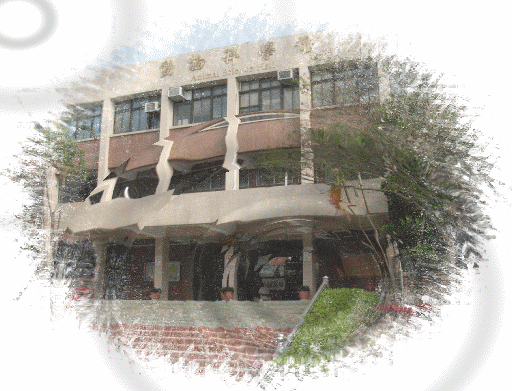Questions and Answers
type6
National Chiayi University
National Chiayi University

Department of Animal Science
Introduction
The department was established in August 1952 while the school was a vocational school and focused on animal husbandry & care. The school was promoted to become a college for agriculture in March 1965. The Department was later approved to offer two majors, animal husbandry and veterinary medicine in July 1967. In August 1975, the school established Department of Veterinary Medicine, and started to offer two-year college degrees. The Department of Animal Husbandry changed its name again in 1993. Later in 1997 the Department changed its name more descriptive of the evolving mission –Department of Animal Agriculture Technology. It started offering two-year college degree. National Chiayi University was formed in February 2000 by merging two existing colleges in Chiayi, i.e., National Chiayi Institute of Technology (NCIT) and National Chiayi Teachers College(NCTC). Following this change, the Department started offering four-year degrees. The department was approved to offer master degree since September 2001, and has enrolled students since 2002. The department changed to its current name on August 1, 2004.
Objectives
The department emphasizes professional knowledge and techniques in the field of animal science. Besides focusing on intellect development of students on basic sciences, we also place our education and research emphases on animal nutrition, animal physiology, genetics and breeding, livestock and poultry production, farm management and animal products processing. To meet the market demand, the requirement of resource preservation and environmental protection, we provide knowledge of modern animal science research and technology to help speed up the upgrade of animal industry, and make Taiwan more competitive.
Courses
Our departmental programs integrate science, practice, and innovation to serve the immediate needs of animal industries. Our commitment is to educate and prepare students for productive and gratifying careers in animal production and the diverse areas of animal business and industry. These courses are about (1) animal nutrition and breeding—research and develop animal feed; (2) physiology-reproduction, breeding and cloning; (3) genetics—selection, cultivation and screening; (4) animal production—food process and uses; (5) management of business and leisure industry.
To encourage students to pursue meaningful work experience and to meet the requirement of different classes, the department would arrange internships for students to work on animal farms or in businesses. Before graduation, students studying in undergraduate program need to take at least 128 credits including 30 credits of basic courses, 53 compulsory and 45 selective credits of core courses for majors( at least 30 credits for animal science discipline) Students in graduate program must complete at least 30 credits (6 credits for master thesis).
Faculty
The program is led by 11 faculty members including 5 professors, 3 associate professors, 2 assistant professors, and 1 lecturer. 9 of them hold a doctor degree. The program and disciplinary focus areas mentioned above.
Vision
We, the faculty, staff, and students, aspire to improve our teaching and research. The department encourages its faculty to conduct short-term exchange project and research work. Our teachers work together as a team to work on different research projects. The department holds international conferences and encourages teachers and students to attend academic conferences for exchange of information. Teachers are encouraged to participate in outreach to inspire students to learn in animal science so that they can provide better service to the industry and the society.
Career opportunities
Our graduates use their degrees in a wide range of areas. They can choose to take the national examinations to become a qualified public servant. Graduates could work in technology department, livestock institute and livestock farms, or choose to work in private farms, meat production, shambles, frozen food process factory, animal feed factory or pharmaceutical industry. The training in the department has prepared students to work in production, marketing, and research and development. They can also start their own business. Moreover, some of our graduates chose to advance their studies and pursue master degrees with concentrations in animal science, biology, food science and other related fields.
Facilities and resources
All the classes are designed to provide students basic theories and hand-on experiences. Our facilities include laboratories, factories and farms sites, where students can learn to operate machines and practice animal feeding and livestock management. We take great pride in our cutting-edge classrooms, animal product marketing center and animal arena (farms house cattle, chicken, pigs, sheep, sewage treatment plant and animal product workshop).
The school acquired important equipment such as atomic absorption spectrometer, protein electrophoresis and purification equipment, high speed refrigerated centrifuge, refrigerated centrifuge, liquid chromatography, gas chromatograph, vacuum dryers, instrument for nucleic acid reaction proliferation, fluorescent microscope and DNA imaging system. The animal product development and promotion center is equipped with all kinds of machines including machines for cutting, meat grinding, filling, drying, and packaging. There are also machines for meat pelleting and roasting and those for making egg roll and ice cream. Students earn their internship experiences and acquire skills in the factories by working on making animal products. In the animal farms, students can learn to operate automated feeding equipment, the electronic system for dairy management and testing, HTST sterilization, the milk homogenizer, etc.
